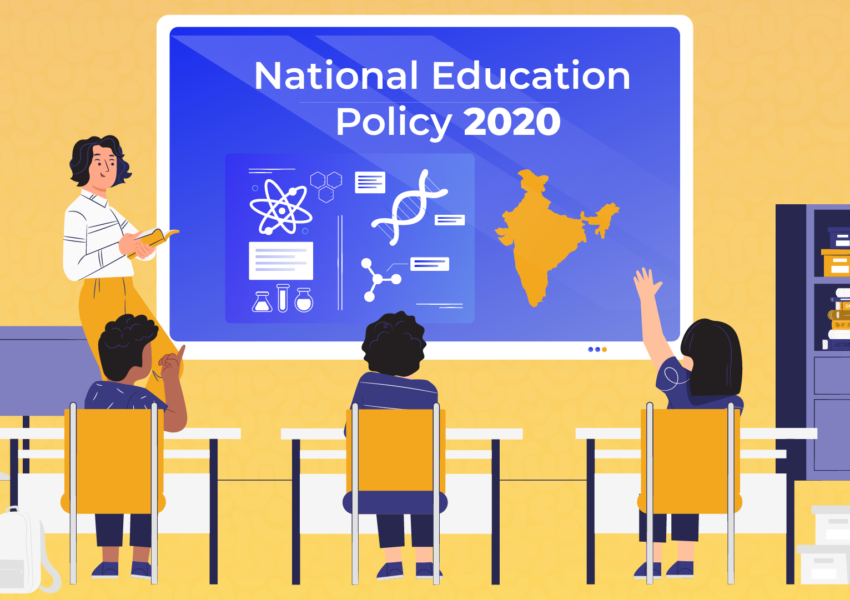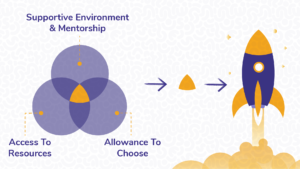
The National Education Policy (NEP) 2020, a comprehensive reform blueprint for the Indian education system, strongly emphasises skill development in schools. Recognising the need to equip students with practical skills alongside theoretical knowledge, the NEP envisions a holistic approach to education, fostering creativity, critical thinking, and problem-solving.
The NEP 2020 underscores the importance of a skill-based education system that prepares students for the challenges of the 21st century. It proposes a fundamental shift in the curriculum, moving away from rote learning towards a more experiential and application-oriented approach. The policy advocates integrating vocational courses and hands-on learning experiences, ensuring students develop diverse skills catering to academic and real-world scenarios.
To thrive in the rapidly changing landscape of the modern workforce, students must acquire various skills beyond traditional academic knowledge. The NEP identifies key skills such as communication, critical thinking, collaboration, and adaptability as essential for success. Additionally, technical skills relevant to the evolving job market, such as coding, digital literacy, and problem-solving, are highlighted. The goal is to produce well-rounded individuals capable of navigating the complexities of an ever-shifting global economy. A NASSCOM report in 2020 highlighted the increasing demand for skills like critical thinking, problem-solving, and digital literacy in the Indian IT and business process management industry.
Upskilling learners is easy. All it takes is a three-pronged approach –
- Provide students with a supportive environment & the best mentorship
- Give learners affordable access to resources
- Finally, they are allowed to choose skills of their interest.

Implementing skill development initiatives requires a concerted effort from educators, policymakers, and the community. Here are some ways to effectively facilitate school skill development:
- Integrated Curriculum: Design a curriculum that integrates theoretical and practical aspects seamlessly. Encourage cross-disciplinary learning to provide students with a comprehensive understanding of various subjects.
- Teacher Training: Equip educators with the necessary skills to impart practical knowledge. Continuous training programs can keep teachers abreast of the latest educational methodologies and technologies.

- Industry Collaboration: Forge partnerships with industries to bridge the gap between academia and the real world. Internships, workshops, and guest lectures from industry experts can provide students with invaluable insights and hands-on experience.
- Technology Integration: Leverage technology to enhance the learning experience. Incorporate online platforms, simulations, and educational apps to make learning more engaging and interactive.
- Rethinking Assessments: Move towards a more dynamic and continuous assessment system that evaluates not only academic performance but also the application of skills in real-world scenarios.
- Community Involvement: Engage parents and the local community in the educational process. Community-driven initiatives can provide students with diverse perspectives and real-world experiences.

In conclusion, the NEP 2020 lays the foundation for a transformative educational experience that goes beyond traditional classroom learning. By fostering skill development in schools, we empower the next generation to navigate the challenges of the future with confidence, resilience, and adaptability. It is a collective responsibility to ensure that our educational institutions become breeding grounds for innovation, creativity, and the holistic development of every student.